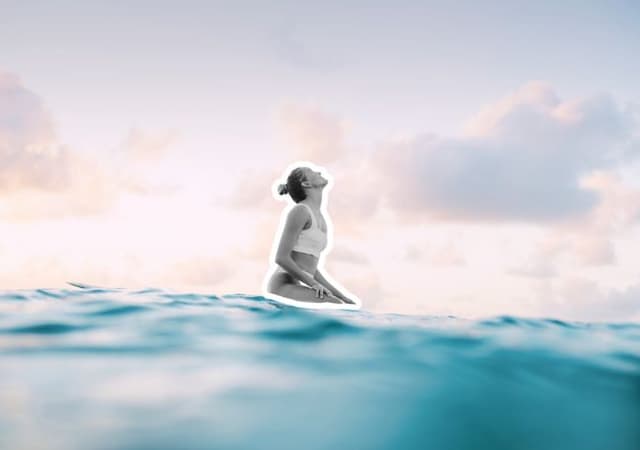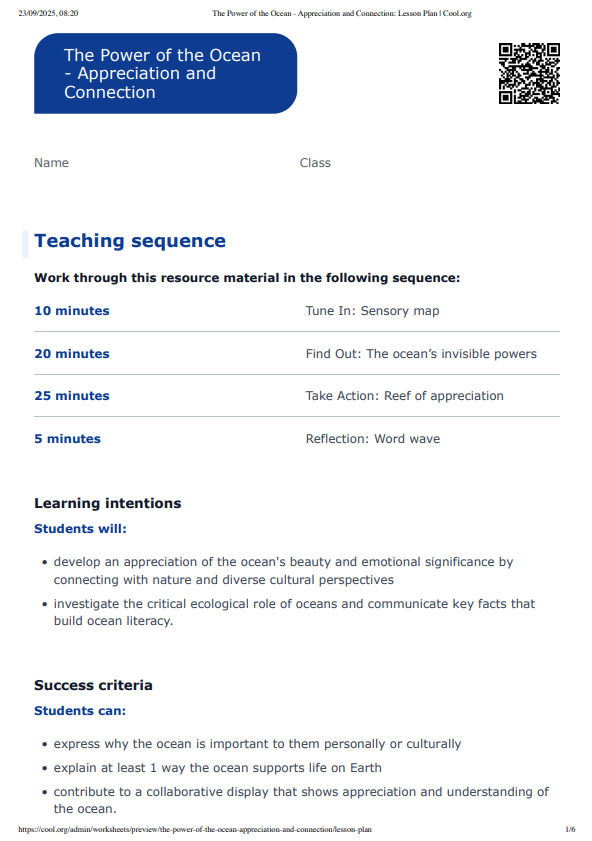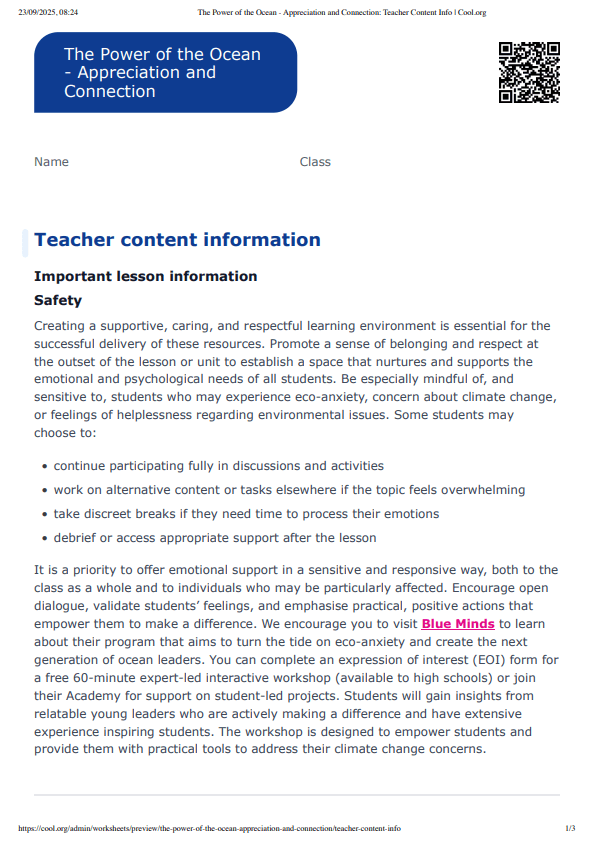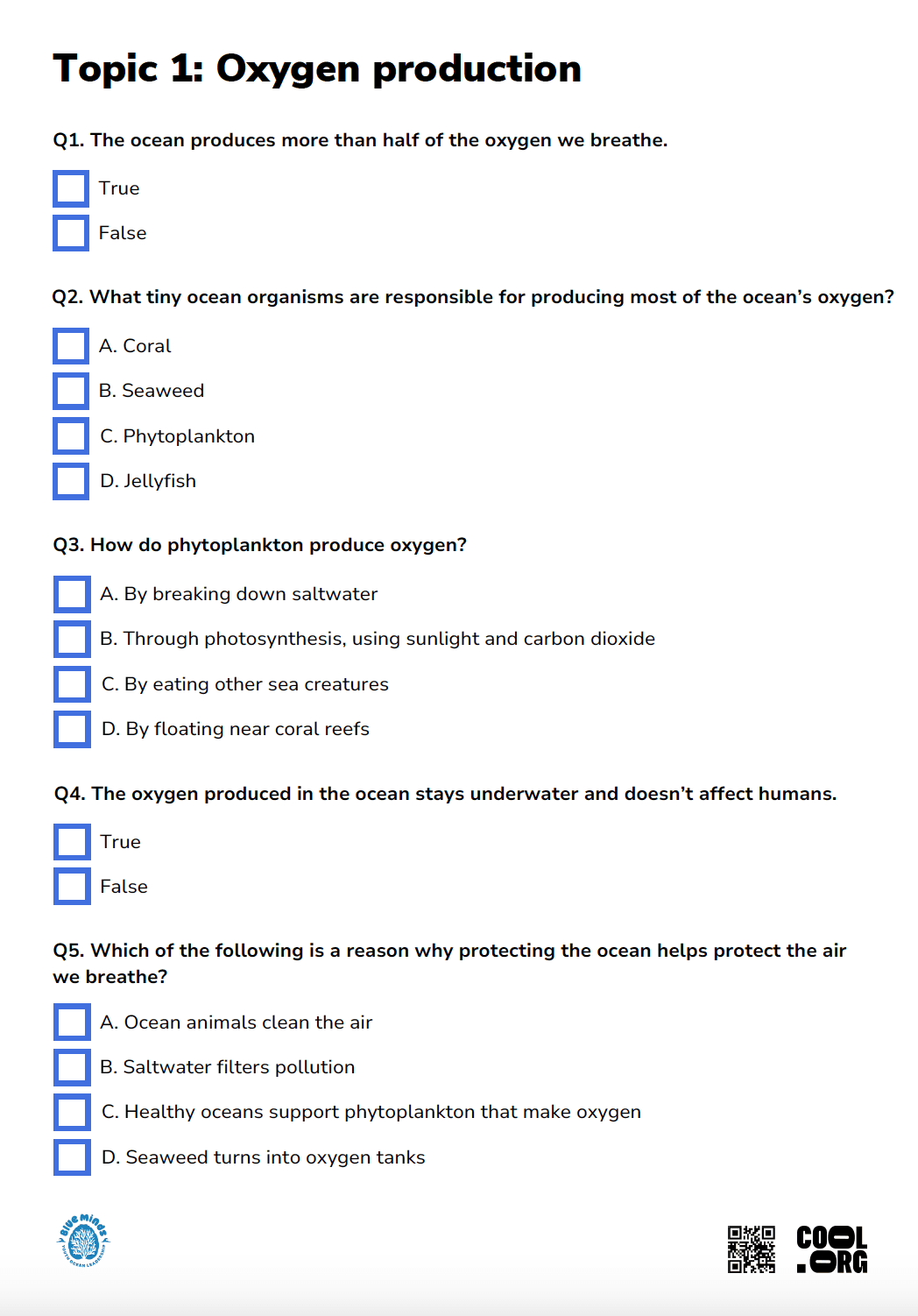Learning intentions
Students will:
- develop an appreciation of the ocean's beauty and emotional significance by connecting with nature and diverse cultural perspectives
- investigate the critical ecological role of oceans and communicate key facts that build ocean literacy.
Success criteria
Students can:
- express why the ocean is important to them personally or culturally
- explain at least 1 way the ocean supports life on Earth
- contribute to a collaborative display that shows appreciation and understanding of the ocean.



